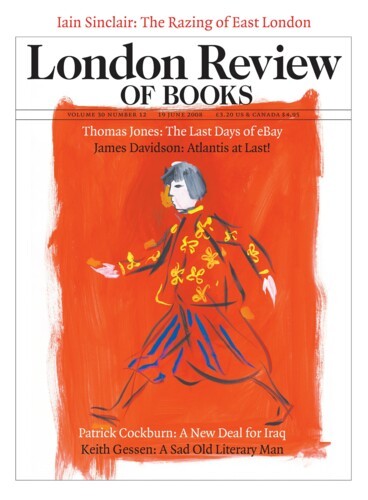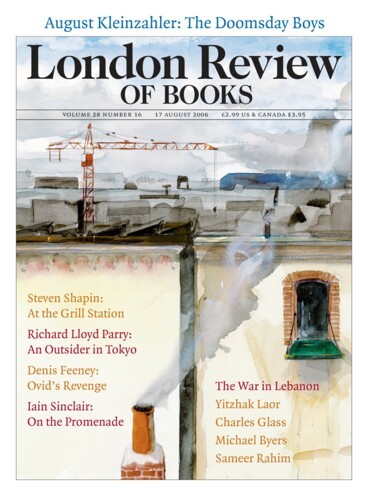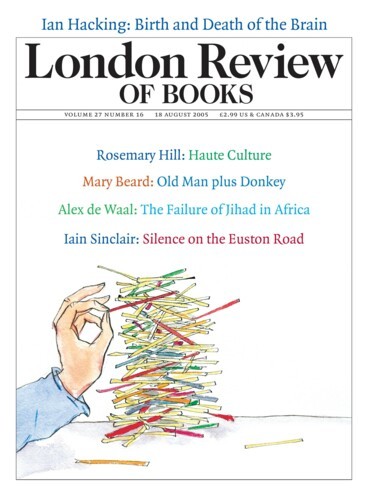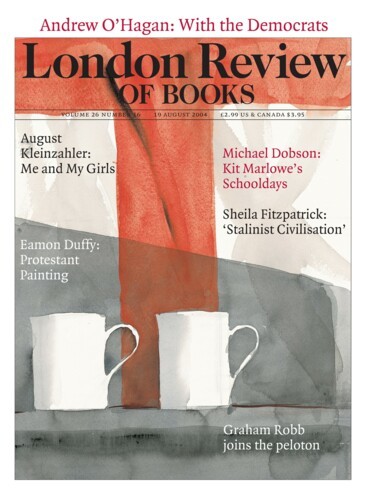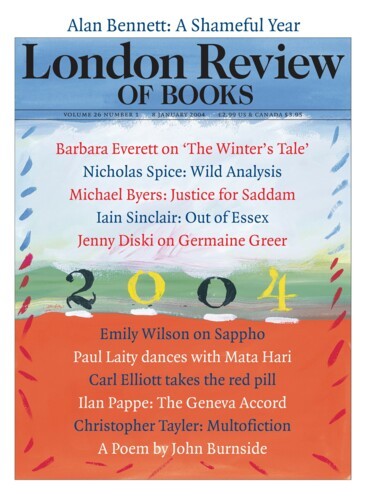The Olympics Scam: The Razing of East London
Iain Sinclair, 19 June 2008
In the mornings, there is a clinging, overripe smell that some people say drifts in from the countryside, a folk memory of what these clipped green acres used, so recently, to be. Mulch of market gardens. Animal droppings in hot mounds. The distant rumble of construction convoys. The heron dance of elegant cloud-scraping cranes. Flocks of cyclists clustering together for safety, dipping and swerving like swallows. Hard hats and yellow tabards monkeying over the scaffolding of shrouded towers, the steel ribs of emerging stadia. Early risers, in the privilege of first-use recreation, a smudge of sun burning off the fug of pollution that hangs over a pre-Olympic city, fall into quiet conversation. Ice-cream kiss of almond blossom, bridal abundance of cherry: pink and white. Yellow pom-poms of japonica, horticultural cheerleaders. In a corner, under a high wall that gives away the previous identity of this public park as a decommissioned energy-generating plant, retired workers sway, stiffly and slowly, in t’ai chi ballets.
